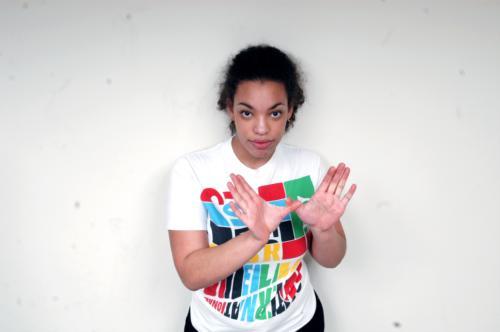
The Way of the Wu
Pop quiz: What legendary group did future pop-producing machine Scott Storch join in his teens and then quit? What does EPMD stand for? How many original members of the Wu-Tang Clan are there?
Answers one by one, all in good time; bear with me for a word or 800. I’ve been a vocal and unapologetic critic of Yardfest in the past, but I’m in full support of tomorrow’s concert, featuring the Wu-Tang Clan (Gavin DeGraw, I have no idea who you are, but I’ll give you the benefit of the doubt). As for Wu-Tang, it’s not just that they’re artists with a powerful legacy of cultural and artistic relevance—as hip-hop’s uber-group (along with perhaps the Roots, for which Scott Storch played keyboard), they are the spring from which countless fountains of Five-Percenter slang-throwing rappers and chess-playing b-boys flow, not to mention the beginning of my own interest in hip-hop.
I spent my first semester at Harvard slightly unmoored, thanks to ill-matched roommates and general freshman-year over-stimulation. So, I opted to channel my energies into nonstop Moral Reasoning-related freakouts rather than, like, joining organizations and making friends or whatever. It wasn’t until sophomore fall when I received a Facebook message inviting me to comp The Darker Side, WHRB’s hip-hop department, that I began participating in the frantic extracurricular whirl that defines the Harvard experience for many. Aside from my work for a certain weekend magazine, no class or activity took up as much of my time that year as my effort to know everything—or even, say, half—there was to know about hip-hop.
I thought such a goal might be reachable—until my comp directors unveiled “The Chart”: an enormous, carefully drawn spiderweb of black spoken culture from the 1950’s to the mid 1990’s. Martin Luther King, Jr. led to rapper-poet Saul Williams led to Grandmaster Flash through an intimidating network of chutes and ladders. Complicating matters, modern hip-hop has a rich history of allusions, invented mythologies, and shorthands. These can be sort of boring, e.g. the aforementioned EPMD (stands for Eric and Parrish Making Dollars). But others are both esoteric and extensively catalogued, in such an attractive way that learning every Nation of Islam-related acronym, every Black Panther name-checked in a Dead Prez song, and every slang term for cocaine seems like not only an executable idea, but a good idea. My love of hip-hop, for better or for worse, became the best class in the world.
Of these rap universes, Wu-Tang’s—one part kung-fu, one part Mafia, one part Nation, with a smattering of nerd (“mathemetics,” Greek mythology, comic books) that makes it particularly Harvard appropriate—is for me the most all-encompassing and the most irresistible. Any mythology that deifies bathrobes, Snapple iced tea, and Wallabees is a win in my book. Another part of the appeal is personal: nine men contributing to a unified whole, with each successfully doing his own solo thing on the side, is a lesson to us all. And, like all the best supergroups, from the Beatles to the Power Rangers, Wu-Tang as a whole includes characters representing the full spectrum of human experience. To rap nerds, the members of the Wu are like family members, as well as familiar sides of one’s own personality. Who among us hasn’t had to argue like the RZA to make his ideas heard despite critical popular opinion? Or had a U-God moment, when your friends (or your labelmates) don’t call you back and you feel like you aren’t getting the respect you deserve? And, let’s be serious: who among us hasn’t behaved like an Ol’ Dirty Bastard at one time or another?
That said, music shouldn’t feel like school—something you study, as though you’ll be tested on it later. When I entered Harvard, I had envisioned myself devouring canonical books and Core classes with the same energy that I ended up directing towards music and writing. Instead, while I drilled on Wu-Tang and the New Journalism, I dropped a class because I saw Samuel Richardson’s Clarissa on the syllabus, there was a lot of speaking in kung-fu-related code with my radio station cohorts, and a little disdain for those who could only name most-popular Wu-Tang members Method Man, Ghostface Killah, and ODB.
But for this show, my fellow Harvard students are part of the pre-concert hype process. I can finally talk about Enter the Wu-Tang (36 Chambers) outside the warm, record-filled confines of WHRB’s studios in the basement of Pennypacker. And for the past few weeks, I have been. I’m slowly indoctrinating my roommates in the ways of Ghostface and Raekwon. Not everyone has heard of the Wu-Tang Clan, and of those who have, probably even fewer really care that much, so I’m doing my part to spread the love. The student body is finally genuinely excited about a Harvard-sponsored concert, and I’m predicting that we’ll all actually go—and not just because the dining halls close tomorrow after lunch. I’m looking forward to Yardfest, not to take notes, but to join thousands of Harvard students and form like Voltron in front of Memorial Church for an un-ironic, actually fun musical experience. Tomorrow, I’m going to hear one of my favorite groups for the first time through loudspeakers instead of my headphones, enjoying music in a democratic sense, unlike my sophomore-year forays in metaphorical-alias-related snobbery. In short, I am pumped. A+!


